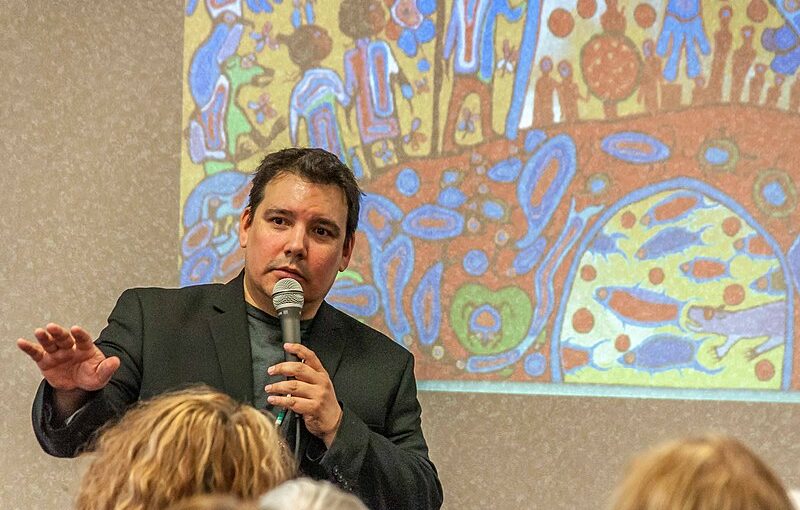If our job is to prepare young people for a hard to predict future, then it’s best to prepare them around the few semi-certainties we can connect, extrapolate for, or at least confidently guess. Sinclair highlights one easy to predict part of the future. Indigenous populations are growing, in nearly every community, at a much higher rate than non-indigenous Canadian populations. Sinclair explains that, “everyone children may grow up to know will most likely be, know, or love someone indigenous”. Avoiding inclusivity, not allowing students to see Indigenous perspective, this is robbing them of a future where they can collaborate and connect with those around them.
The one thing current SD57’s TTUC onboarding taught me is that the future is uncertain. No one’s really sure what jobs are going to look like for the people I’m teaching. They tried to guess when I was a kid and they were so wrong they had to re-align and heavily promote careers in trades by the time I finished high-school. Several years later and a Pandemic changed the way we see office jobs and corporate culture. There’s some great solutions to the oncoming threat of ecological collapse but they’re attempting to tackle a massive global issue that’s already well under way in most of the world. Education has a history of preparing people for employment. While this is valuable in society where employment is often necessary for continued basic survival, it shouldn’t be the only goal and likely isn’t the most valuable one.
Community is the one thing we know works. It’s the one thing we know allows human beings, in any time, to succeed and make the world a better place. We have to live, thrive, and survive together and if students can learn to do this they have a great chance at conquering everything we can and can’t predict. One challenge is the history of competition that dominates both western thought and much of the educational experience. From the bigger lens that is Nation to Nation relationships Indigenous peoples fought, but their agreements and treaties were about connection and relationship. Indigenous communities are increasingly collaborative for the benefit of all while modern nation states, including Canada, are focused on competition. Sinclair highlighted how much of what we value within capitalism and competition simply isn’t workable with the goals of community and indigenous values. We teach how to be successful by metrics that have caused immeasurable harm. What students need to survive anything, to thrive together, the core skill Sinclair pointed out we don’t measure, is empathy. If students can learn community and empathy, teachings ingrained to First Peoples Principles of Learning, then they’ll have the support and foundation to learn everything they need to thrive in whatever world that comes.

